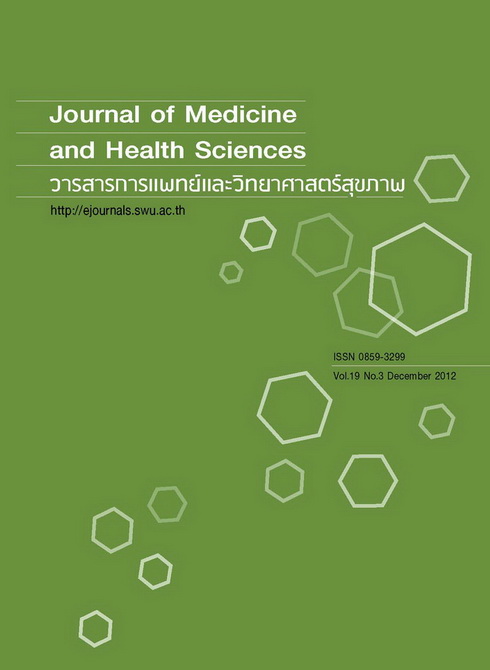Risk factor for developing first episode of peritonitis in patients undergoing CAPD
Keywords:
risk factor, peritonitis, peritoneal dialysisAbstract
Peritonitis is a common complication in patients undergoing continuous ambulatory peritoneal dialysis (CAPD). It is the most common cause of transferring to hemodialysis. The aim of this study was to determine the risk factor for developing first episode of peritonitis. Patients who have been treated with CAPD for more than 3 months at Hat-Yai hospital were recruited for this study. Patients who are diagnosed with peritonitis have two out of these three manifestations including (1) symptoms such as abdominal pain, fever (2) turbid dialysate effluent with white cell count > 100 /mm3 and PMN> 50% of WBC and (3) identification of dialysate organism. The data was retrospectively reviewed from 2005 to 2011 and analyzed appropriately with either Chi’s square and logistic regression. There were 82 CAPD’ s patients participated in this study. Forty-one patients were male with an average age of 55.3±16.8. There were 39 patients with diabetes accounted for 47.6% and 23 patients (28%) had peritonitis. The pathogens found in these patients were gram negative bacteria for 12 patients, gram positive bacteria for 3 patients, fungus for 1 patients and negative culture for 7 patients. The risk factors for developing peritonitis were low post-dialysis albumin, gender (male), BMI > 25 kg/m2, age, and low post-dialysis hematocrit after CAPD.Downloads
Published
2013-01-15
Issue
Section
Original Article


